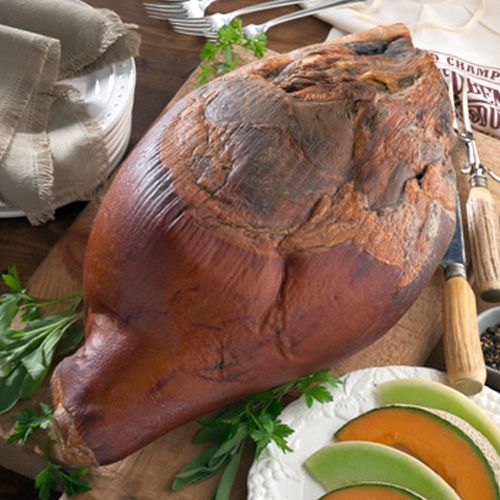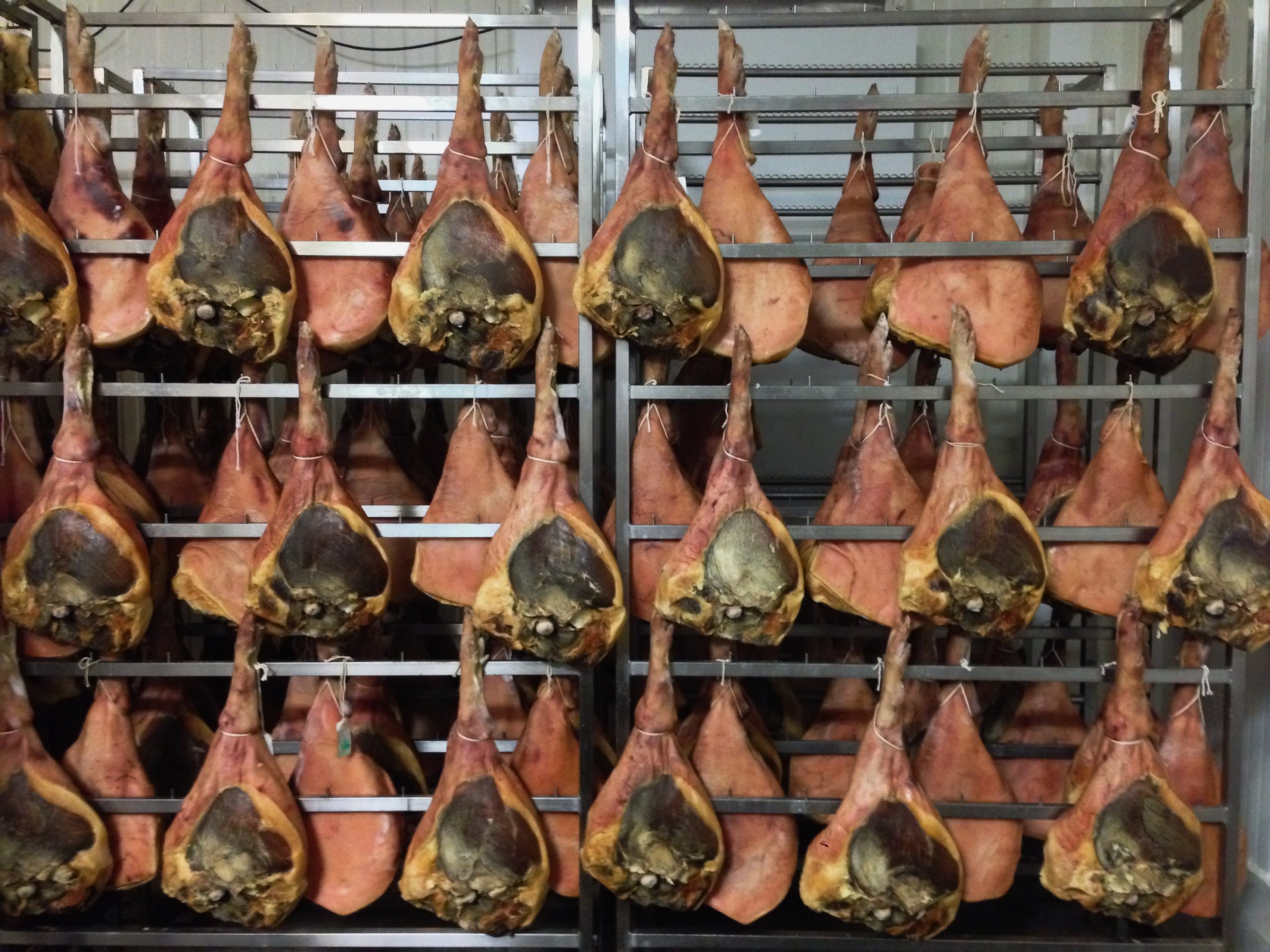What is
Cured Ham?
Cured ham is a type of meat product that has been preserved and flavored through various curing processes, which typically include the application of salt, sugar, and other seasonings, with some versions also being smoked.
Origins & History
Cured ham has a long history that dates back to ancient civilizations. The process of curing meat started as a means of preservation before refrigeration became widely available. Different regions have developed their own methods and styles of cured ham, with prominent examples including Spanish Jamón, Italian Prosciutto, and American Country Ham. Each type reflects the local traditions and ingredients used in the curing process.
Taste & Texture
Cured ham has a rich, savory flavor that can vary greatly depending on the curing method and seasonings used. It may have a salty, slightly sweet taste with hints of smoke or spices, providing a complex flavor profile that pairs well with various dishes and ingredients.
Ingredients
Pork leg
The primary ingredient used for making cured ham, traditionally sourced from the hind leg of pork.

Salt
A key ingredient for curing that aids in preservation and flavor enhancement.

Sugar
Often used in the curing process, sugar can balance the saltiness and enhance the flavor.
Nitrites/Nitrates
Used in some curing processes to inhibit bacterial growth and give the ham its characteristic pink color.

Spices and herbs
Various spices and herbs, such as black pepper, garlic, or rosemary, may be added to enhance the flavor profile of the cured ham.
This item may contain the following allergens:
Pork

Images may not reflect the actual item.

:max_bytes(150000):strip_icc()/245724-home-cured-holiday-ham-DDMFS-4x3-88204191d5d94ba9a434e6c581a90a71.jpg)










